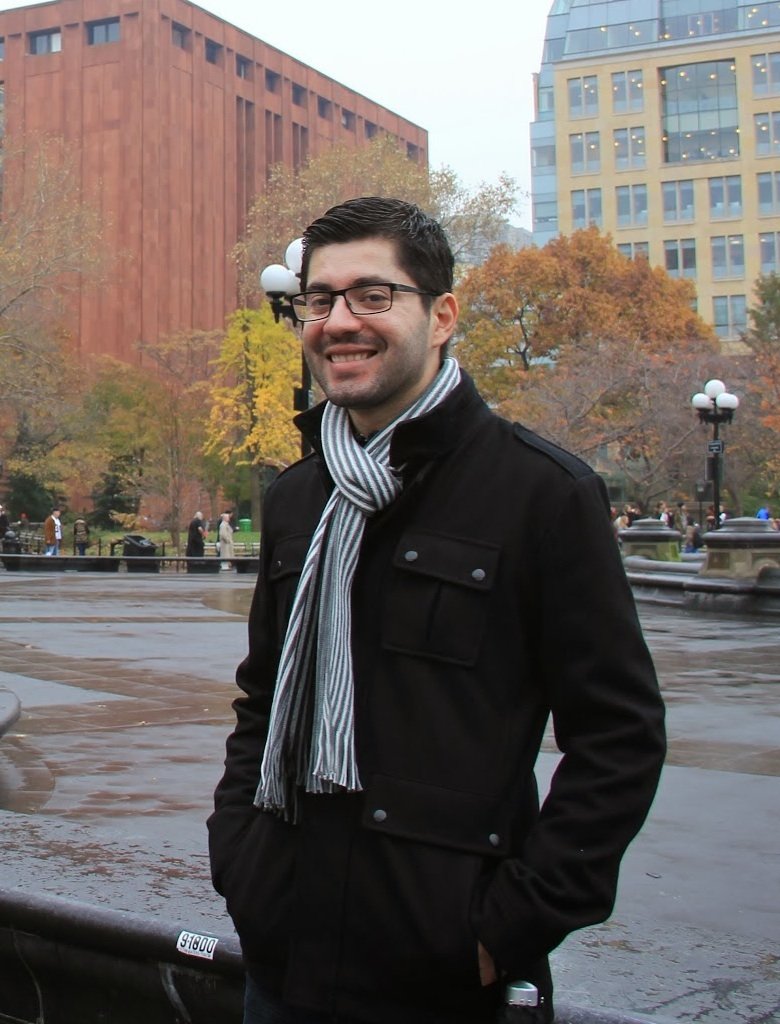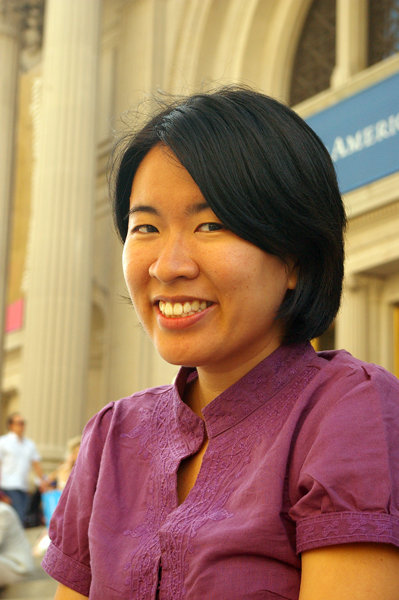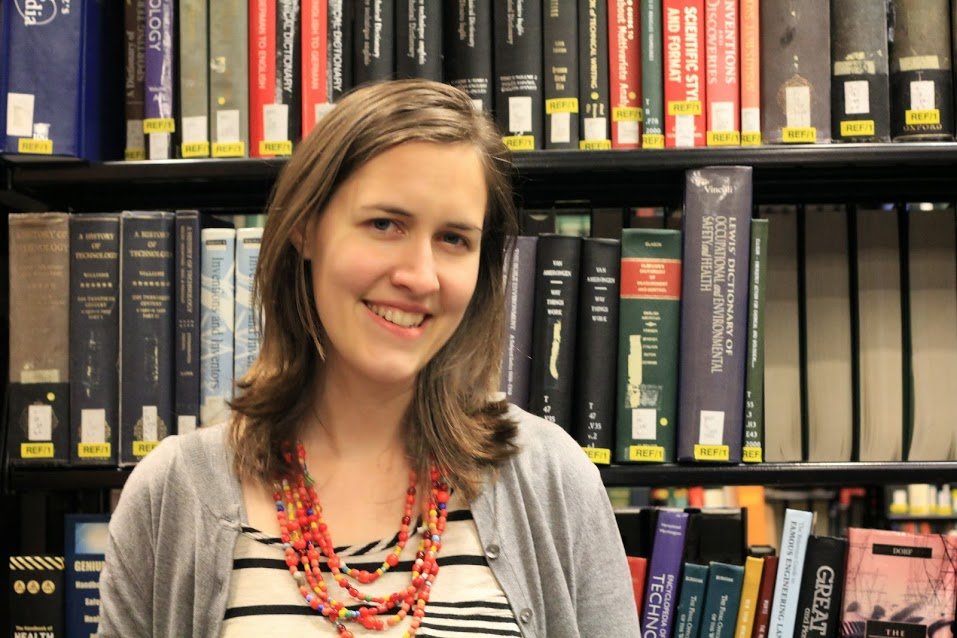2014 Student Paper Competitions Award Winning Abstracts
Congratulations to the student paper competition winners! The student paper competitions awards are proudly sponsored by the Divisions.
COMMUNITY RESEARCH AND DEVELOPMENT DIVISION
No award given
CONFLICT, SOCIAL ACTION, AND CHANGE DIVISION
Winning Title: “Business Unity and Anti-Corporate Social Movement Protests in the U.S.”
 Author: Tarun Banerjee
Author: Tarun Banerjee
Affiliation: SUNY - Stony Brook
E-mail: tarun.banerjee@stonybrook.edu
Abstract:
Do large corporations respond to social movement protests following a firm-centric rationale or do they develop their strategies relationally? If they do so relationally, do corporate networks help foster class-wide unity in their responses to protests? I address these questions through an examination of protests against U.S. Fortune 500 firms. I incorporate data on board of director interlocks and corporate involvement in policy-planning organizations to test the effect of embeddedness in corporate networks. Utilizing firm- and dyadic-level analyses, I show that firms more embedded in the board of director network concede to protest demands less often while retaliating against protesters more. In addition, firms more involved in liberal policy groups are more likely to concede and less likely to retaliate, while firms more involved in conservative policy groups show the reverse pattern. These findings were robust after controlling for social movement and firm-level characteristics typically considered in social movement research. This suggests that class-wide networks shape corporate responses to protests in ideologically identifiable ways and enable greater unity between these firms. In this manner, I show that how large corporations respond to social movements is not determined a priori merely by the individual interest of the firm, but shaped socially through relations with other corporations.
CRIME AND JUVENILE DELINQUENCY DIVISION
Winning Title: “How Prisons Create Crime: Prisonization and Bourdieu’s Theory of Practice”
Author: Liam Martin
Affiliation: Boston College
E-mail: liam.martin@bc.edu
Abstract:
Sociologists have explained the rise of mass incarceration in terms of broad social and historical shifts driving punitive penal policy: the growth of populations marginalized from the formal labor market (Beckett and Western 2001), the angst and insecurities of late modernity (Garland 2002), the breakdown of old regimes of racial control (Wacquant 2009). But the current scale of imprisonment is only made possible by processes that create recidivism as a systemic feature of the prison system: the last nationwide study by the Bureau of Justice statistics found that two-thirds of those released from state prison are back behind bars within three years (Langan and Levin 2002). A growing body of quantitative research suggests that one mechanism driving recidivism is built into the prison itself: the criminogenic effects of incarceration (Nagin, Cullen and Jonson 2009). Drawing on ethnographic research living at a halfway house and life history interviews with former prisoners, I examine the relationship between incarceration and crime by re-framing prisonization (Clemmer 1940) using concepts from Bourdieu’s (1977, 1990) theory of practice. I draw attention to the way imprisonment transforms basic habits and dispositions, and show how the process of prisonization interacts with broader structures impacting the lives of former prisoners to produce the criminogenic effects of incarceration.
DISABILITIES DIVISION
Winning Title: “The Ambiguity of Deviance: Framing and Social Control among Caretakers of Adults with Autism” 
Author: Benjamin DiCicco-Bloom
Affiliation: Hamilton College
E-mail: bdiciccobloom@gmail.com
Abstract:
This paper explores how caretakers interpret and respond to behaviors like self-injury and aggression in individuals with autism, a process for which concepts associated with the literature on the societal reaction to deviance are relevant. Particularly relevant is the body of work exploring the medicalization thesis which draws on historical and publically available data to argue that sickness has replaced badness (sin and crime) as the most common institutional definition of phenomena labeled deviant (e.g. heavy drinking/alcoholism, madness/mental illness, and juvenile hyperactivity/ADHD). Though innovative in determining how deviance definitions shape social control strategies, in presenting a macro-level argument about definitional transition medicalization tends to suggest that people, who operate on the level of micro-interaction, do not have multiple definitions available to them simultaneously—interpretations which are often all plausible and endorsed by at least some individuals around them. Drawing on ethnographic data from a study of families of adults with severe autism, this paper explores how caretakers define what they see as problem behaviors by drawing on three common and readily available definitions: misbehavior, sickness, and disability. The paper first documents how families and professionals in the context of public and private settings apply different definitions of deviance and how these definitions shape the social control strategies they advocate. It then goes on to argue that the diversity and multivocal nature of lived reality, along with the perceived stakes surrounding the protection of those with severe autism, leads caretakers to engage in conflict and negotiation over deviance definitions and social control strategies.
DRINKING AND DRUGS DIVISION
No award given
EDUCATIONAL PROBLEMS DIVISION
Winning Title: “The Production of the Docile Student: School Discipline in Texas”
Author: Jessica L. Dunning-Lozano
Affiliation: The University of Texas, Austin
E-mail: jdunninglozano@utexas.edu
Abstract:
Current research highlights the extension of the state’s punitive arm over marginalized communities. This paper examines one way this extension occurs in public education. Based on ethnographic data from a public grade 6-12 Disciplinary Alternative Education Program (DAEP) in Texas, this paper scrutinizes the behavioral rules and disciplinary procedures at the DAEP. This analysis focuses on students’ introductory experience as a “strategic research site” to illuminate the program’s formal objectives, methods to achieve their institutional goals, and their effects on students. The practices and procedures in place at the DAEP constitute “disciplinary technologies” devoted to the transformation of "culturally deficient" students into docile bodies. I find that students are disciplined through punitive and rehabilitative methods premised on the discursive construction of "deficient" students and families. My conclusion suggests that the DAEP works to produce students as self-regulating carceral subjects conditioned for participation in the criminal justice system.
ENVIRONMENT AND TECHNOLOGY DIVISION
No award given
FAMILY DIVISION
Winning Title: “Assimilating Childrearing: Parenting Re-Socialization of Immigrant Mexican Families in the Bay Area”
 Author: José G. Soto-Márquez
Author: José G. Soto-Márquez
Affiliation: New York University
E-mail: jgsoma@nyu.edu
Abstract:
A very limited discursive analysis of childrearing strategies employed by the Mexican immigrant populations exists. Currently, heated policy debates surrounding legal and illegal immigration in general, and assimilation of immigrants in particular, merit further study. Accordingly, this study analyzes and delineates the underlying childrearing messages that are presented by immigrant Mexican families to their bicultural children at home, public settings, religious institutions, and in support or dismissal of various formative media outlets. Ethnographic observations and in-depth interviews of 42 participants within six different and socioeconomically diverse Mexican immigrant families in Oakland and Richmond, CA are presented. These observations and interviews are supplemented with an established set of revisionist empirical data. The theoretical analysis is largely informed by the established analytical focus in the existing early development and broad socialization literature, and thus central attention is given to parental logic, agency, and to the overall messages designed to encourage or prevent a Euro-American influenced transformation in the immigrants’ childrearing. Hence, the overall delineation of this parental socialization focused on the Mexican immigrant families’ suggested childrearing behaviors as they directly related to a desired and/or sanctioned household structure, gender personality, and group identity. The practical pedagogical concept of “showing and shaping” and the particular eco-cultural parental compromises in low- and high-SES Mexican immigrant families are introduced as adequate delineations of the overall Chicana/o family childrearing strategy and outcome. Study size limitations and implications for other collectivist immigrant family groups are also discussed.
GLOBAL DIVISION/CRITICAL SOCIOLOGY GRADUATE STUDENT PAPER AWARD
Winning Title: “The Tensions of Diasporic ‘Return’ Migration: How Class and Money Create Distance in the Vietnamese Transnational Family”
 Author: Mytoan Nguyen-Akbar
Author: Mytoan Nguyen-Akbar
Affiliation: University of Puget Sound
E-mail: mnguyenakbar@pugetsound.edu
Abstract:
Propelled by the globalization of work opportunities in the Global South, thousands of Viet Kieu (overseas Vietnamese) 1.5- and second-generation migrants are “returning” to Vietnam to find skilled work. Through a global ethnography in urban Ho Chi Minh City, this article illustrates how these diasporic “returnees” negotiate their contentious relationship with their nonmigrating, often poorer extended family. My research contributes to the migrant gift giving and reciprocity literature by examining the many ways that “return” migration can create tensions and ambiguity within existing transnational family remittance relationships across borders. The increased presence of diasporic “return” migrants also prompts scholars to reconsider the durability of transnational family ties across the generations, as face-to- face encounters reveal how class, generation, age hierarchy, and gender can create micro-level axes of difference and distancing.
Honorable Mention: “Fair Trade, Neocolonial Developmentalism, and Racialized Power Relations”
.jpg)

Authors: Ian Hussey and Joe Curnow
Affiliation: York University and OISE-University of Toronto
E-mail: ihussey@yorku.ca and joe.curnow@mail.utoronto.ca
Abstract:
The developmentalist gaze of the Fair Trade movement is on Global South producers. In this article we turn our analytic gaze toward North American fair traders to explore the racialized, neocolonial power relations in which these movement actors are implicated. Firstly, we offer a brief historical sketch of Fair Trade certification. We argue that the certification system is a multi-sited, global institution that is shaped by and which shapes neocolonial power relations in Fair Trade by exploring the consolidation and more recent splintering of the international certification system. Secondly, we provide a postcolonial critique of developmentalism, with a focus on the timing of development, in order to lay a foundation for the remaining sections. Thirdly, we analyze the spatiality of Fair Trade, with an emphasis on what and who are missing from or erased by the structural and conceptual frameworks of Fair Trade. Fourthly, we explore the relationship between Fair Trade, commodity fetishism, and the developmentalist conception of space/time propagated by Fair Trade advocates. We conclude with a critical analysis of the neocolonialist and racist discourse of Fair Trade, with a focus on the “helping” discourse. We contend that as Global North fair traders strive to “help” Global South producers, they re-entrench neocolonial narratives of white supremacy and the desire to develop.
HEALTH, HEALTH POLICY, AND HEALTH SERVICES DIVISION
Winning Title: “Professional Problems: The Burden of Educating the Global Filipino Nurse”
Author: Yasmin Y. Ortiga
Affiliation: Syracuse University
E-mail: yyortiga@syr.edu
Abstract:
This paper investigates the challenges faced by nursing schools within migrant-sending nations, where teachers and school administrators face the task of producing nurse labor, not only for domestic health needs but employers beyond national borders. I situate my research in the Philippines, one of the leading sources of migrant nurse labor in the world. Based on 58 interviews with nursing school instructors and administrators, I argue that Philippine nursing schools are embedded within a global nursing care chain, where nations lower down the chain must supply nurse labor to wealthier countries higher up the chain. This paper shows how this process forces Filipino nurse educators to negotiate an overloaded curriculum, the influx of aspiring migrants into nursing programs, and erratic labor demand cycles overseas. These issues create problems in defining the professional knowledge needed by Filipino nurses; instilling professional values and standards; and maintaining proper job security. As such, these findings demonstrate how countries like the Philippines bear the burden of ensuring nurses’ employability, where educational institutions constantly adjust curriculum and instruction for the benefit of employers within wealthier societies. My interviews reveal how such adjustments undermine the professional values and standards that define the nursing profession within the country. Such inequality is an outcome of nurse migration that current research has not fully explored.
Honorable Mention: “Is schooling a "social vaccine" against HIV for adolescent girls? Evidence from Malawi and Uganda”
 Authors: Julia Behrman
Authors: Julia Behrman
Affiliation: New York University
E-mail: jab965@nyu.edu
Abstract:
This paper explores the causal relationship between primary schooling and adult HIV status in Malawi and Uganda, two East African countries with some of the highest HIV infection rates in the world. Using data from the 2010 Malawi Demographic Health Survey and the 2011 Uganda AIDS Indicator Survey, the paper takes advantage of a natural experiment, the implementation of Universal Primary Education policies in the mid 1990s. An instrumented regression discontinuity approach is used to model the relationship between increased primary schooling and adult women’s HIV status. Results indicate that a one-year increase in schooling decreases the probability of an adult woman testing positive for HIV by 0.06 (p<0.01) in Malawi and by 0.03 (p<0.05) in Uganda. These results are robust to a variety of model specifications. In a series of supplementary analyses a number of potential pathways through which such effects may occur are explored. Findings indicate increased exposure to primary school positively affects spouse’s schooling attainment and literacy in Malawi and age of marriage and household wealth in Uganda. However primary schooling has no effect on recent (adult) sexual behavior.
INSTITUTIONAL ETHNOGRAPHY DIVISION
No award given
LABOR STUDIES DIVISION
Winning Title: “Circuits of Reproductive Labor: Sex Work and Mothering in Contemporary China”
 Author: Catherine Man Chuen Cheng
Author: Catherine Man Chuen Cheng
Affiliation: University of Toronto
E-mail: mc.cheng@utoronto.ca
Abstract:
Through an ethnography of Chinese migrant sex workers in Macao, this article proposes the concept of circuits of reproductive labor to explicate the micro-level processes that constitute and reconfigure multiple forms of reproductive labor. I argue that in order to understand reproductive labor, we need to situate it in the dynamic exchange of gendered responsibility, moral values, and material resources across its multiple forms, which I call circuits. I illustrate a circuit across sex work and mothering—two forms of reproductive labor characterized by divergent material and moral configurations—by demonstrating how lower-class women in post-socialist China were compelled by gendered responsibility as mothers to enter migrant sex work as a viable economic option. As migrant women navigated the morally charged terrain of sex work, they redefined sex work as a self-sacrificing endeavor through a transfer of moral value based on the ideal of socialist motherhood, which in turn informed their practices of remittance and caring for sexual health as mothers. As such, this article underscores the significance of gendered morality in the constitution of multiple and fluid forms of reproductive labor.
LAW AND SOCIETY DIVISION
Winning Title: “How Prisons Create Crime: Prisonization and Bourdieu’s Theory of Practice”
Author: Liam Martin
Affiliation: Boston College
E-mail: liam.martin@bc.edu
Abstract:
Sociologists have explained the rise of mass incarceration in terms of broad social and historical shifts driving punitive penal policy: the growth of populations marginalized from the formal labor market (Beckett and Western 2001), the angst and insecurities of late modernity (Garland 2002), the breakdown of old regimes of racial control (Wacquant 2009). But the current scale of imprisonment is only made possible by processes that create recidivism as a systemic feature of the prison system: the last nationwide study by the Bureau of Justice statistics found that two-thirds of those released from state prison are back behind bars within three years (Langan and Levin 2002). A growing body of quantitative research suggests that one mechanism driving recidivism is built into the prison itself: the criminogenic effects of incarceration (Nagin, Cullen and Jonson 2009). Drawing on ethnographic research living at a halfway house and life history interviews with former prisoners, I examine the relationship between incarceration and crime by re-framing prisonization (Clemmer 1940) using concepts from Bourdieu’s (1977, 1990) theory of practice. I draw attention to the way imprisonment transforms basic habits and dispositions, and show how the process of prisonization interacts with broader structures impacting the lives of former prisoners to produce the criminogenic effects of incarceration.
1st Runner-up: “'What He Did Was Lawful': Divorce Litigation and Gender Inequality in China”
 Author: Ke Li
Author: Ke Li
Affiliation: Indiana University, Bloomington
E-mail: like2@indiana.edu
Abstract:
Does divorce litigation mitigate or reinforce gender inequality in family and society at large? Based on a multistage study of divorce litigation in China, this article identifies three critical moments in women’s interactions with the civil justice system. First, it examines the initiation stage, in which divorcing women approach legal professionals for help. Findings from this stage indicate that, early on in the course of disputing, legal professionals routinely dismiss and violate women’s custodial, property, and spousal rights. After that, this article shifts to investigate the suit-filing stage—a key moment for dispute transformation. It finds that, due to the legal profession’s failure to convert important rights on the books into formal claims, women’s marital grievances and rights fall through the cracks long before they can enter court proceedings. Finally, it demonstrates that court decisions in the judgment stage generate highly unequal outcomes for women and men. By applying a process-oriented approach to analyze divorce litigation, this article generates novel insights into the questions of whether and how legal mobilization gives rise to inequality in Chinese society and elsewhere.
POVERTY, CLASS, AND INEQUALITY DIVISION
Winning Title: “Penalized or Protected? The Consequences of Non-Standard Employment Histories for Male and Female Workers”
 Author: David S. Pedulla
Author: David S. Pedulla
Affiliation: University of Texas, Austin
E-mail: dpedulla@utexas.edu
Abstract:
Millions of workers are currently employed in positions that deviate from the full-time, standard employment relationship. Little is known, however, about how histories of non-standard employment – part-time work, temporary agency employment, and skills underemployment – shape workers’ future labor market opportunities. Drawing on original field- and survey-experimental data, this article examines three interrelated questions: 1) What are the consequences of having a non-standard employment history for workers’ future labor market opportunities?; 2) Given the gendered history of non-standard employment in the United States, do the consequences of these labor market positions differ for male and female workers?; and 3) What mechanisms account for the consequences of having a non-standard employment history? Results from the field experiment demonstrate that a history of non-standard employment is as scarring for workers as a year of unemployment. However, these consequences vary by the type of non-standard employment as well as by the gender of the worker. The survey experiment provides evidence that employers’ perceptions of workers’ human capital, competence, and commitment mediate the consequences of non-standard employment histories for job applicants’ hiring outcomes. Together, these findings shed light on the gendered consequences of changing employment relations for the distribution of labor market opportunities in the “new economy.”
RACIAL AND ETHNIC MINORITIES DIVISION
Winning Title: “Racial Hierarchy and Limbo: Perceptions of Deprivation among Coloureds in Post-Apartheid South Africa”
 Author: Whitney N. Laster-Pirtle
Author: Whitney N. Laster-Pirtle
Affiliation: University of California, Merced
E-mail: wlaster@ucmered.edu
Abstract:
Racial hierarchies are systems of stratification premised upon ideologies that assert race is real and there are dominant and subordinate groups. Those positioned between dominant groups and subordinate groups occupy a position of racial limbo. Coloureds in post-apartheid South Africa are considered here an exemplar case because their placement in the hierarchy was clear and purposeful. The purpose of this paper is to examine whether perceptions of coloureds in post-apartheid South Africa reflect their intermediate, historical position in racial limbo. I inform my examination of racial limbo using relative deprivation theory, which makes predictions about groups’ perceptions of disadvantage relative to another group. I extended this theory to make predictions about coloureds, who are simultaneously dominant and subordinate. Analyzing two waves of the Southern African Barometer (SAB), I examined whether self-identified coloureds in post-apartheid South Africa perceive their group as both deprived and gratified compared to white and black South Africans, respectively. I found that rather than perceiving levels of deprivation that were between white and black South Africans, coloureds reported the highest levels of economic and treatment deprivation. This latter finding suggests that coloureds’ position in racial limbo is not reflected by the balancing of deprivation (relative to white South Africans) and gratification (relative to black South Africans); rather, coloureds feel their position is most deprived. I consider whether heightened perceptions of deprivation are a characteristic of the multiple social comparisons that must be made by groups in racial limbo.
Honorable Mention: “Revisiting White Flight and Segregation: The Consequences of Ethnoburbs"
 Authors: Samuel H. Kye
Authors: Samuel H. Kye
Affiliation: Indiana University
E-mail: skye@indiana.edu
Abstract:
Ethnoburbs—ethnic yet suburban communities of affluence—make up an increasingly larger portion of America’s metropolitan areas. By disentangling the historical overlap of racial/ethnic concentration and poverty, such communities represent an opportunity to re-assess patterns of segregation and white out-mobility racially-based in motive. Yet despite nationwide patterns of ethnoburb growth, little is known about how the emergence of these communities has impacted the residential patterns of local populations. I use a nationally-representative sample of U.S. Census tracts and the Longitudinal Tract Database to analyze how white populations have responded to the emergence of ethnoburbs, and how these patterns differ among black, Hispanic, and Asian groups. Findings show that while all ethnoburbs are significant predictors of white flight, levels remain distinctly high for black ethnoburbs. Current segregation patterns show similar outcomes, although Asian and Hispanic ethnoburbs appear uniquely situated to integrate with white residents in the future. I conclude by arguing for the fruitfulness of continued research on ethnoburbs and their consequences for an increasingly diverse American society.
Honorable Mention: “Arizona Under Fire in a “Post-Racial” Moment: How Color-Blind Discourse, Anti-immigrant Racism and White Injury Ideology Fueled Support for Arizona Senate Bill 1070"
 Authors: Cassaundra Rodriguez
Authors: Cassaundra Rodriguez
Affiliation: University of Massachusetts, Amherst
E-mail: rodrigue@soc.umass.edu
Abstract:
In a seemingly post-racial era in 2010, Arizona’s Senate Bill 1070 was under fire and challenged as racially discriminatory. While the bill was popular among white Arizonians, critics charged that SB1070 could facilitate the racial profiling of all Latinos/as in state law enforcement officers' efforts to check the legal status of those they suspect are undocumented. Analyzing 70 recordings from the Arizona house floor, press conferences, and television interviews during 2009-2012, I investigate how officials discuss their support for this contested legislation. Proponents of the bill largely used color-blind maneuvers in response to questions concerning racial profiling and Latinos/as, but simultaneously constructed racialized undocumented immigrants as criminals and economic burdens. Consequently, political supporters of SB 1070 engaged in a racial discourse evoking an implicit white injury ideology that positioned whites as injured by the presence of racialized immigrants, while all Latinos/as were constructed as outside the (white injured) citizenry.
SEXUAL BEHAVIOR, POLITICS, AND COMMUNITIES DIVISION
Winning Title: “Perpetrating Teachers, Worthy Victims, and the Regulation of Female Sexuality”
 Author: Kerry Mulligan
Author: Kerry Mulligan
Affiliation: The Sage Colleges
E-mail: mullik3@sage.edu
Abstract:
Through a comparative analysis of the media discourses and legal treatment of a national sample of criminal cases involving teachers who had sexual contact with their adolescent students, this research explores how individual journalists and state actors make sense of events that pose challenges to hegemonic ideologies. This paper begins with a discussion of the trivialization of these cases in the media and then elaborates how the media coverage and criminal justice responses to these cases regulate female sexuality and reproduce racial inequality through two distinct discourses. The “troubled womanhood” discourse is strategically employed to shame female perpetrators while simultaneously neutralizing their sexual agency. The “worthy victimhood” narrative draws on white, middle class, and heteronormative constructions of femininity to differentially situate adolescent female victims as “worthy” or “unworthy” of legal protection and community support.
SOCIAL PROBLEMS THEORY DIVISION
Winning Title: “Character Problems as Collective Behavior”
 Author: Arthur Mcluhan
Author: Arthur Mcluhan
Affiliation: York University
E-mail: mcluhan@yorku.ca
Abstract:
Character—as in people’s essential interactional dispositions, especially of a durable and moral nature—is a central feature of everyday social life, but it is a subject that rarely receives sociological attention. When it does, the tendency in most of this work has been to follow psychology in treating character as a set of objective dispositions inhering in the individual, though socially produced or mediated. An extension of this objectivist emphasis, the typical approach to the study of character problems has been to treat them as dispositional essences. In this paper, I challenge this view, demonstrating instead that character problems are the result of collective definition and action. Drawing on 14 months of ethnographic research in two Protestant Christian seminaries, I present a natural history model of character trouble that includes three stages: emergence, legitimation, and remediation. The symbolic interactionist and social constructionist traditions inform the analysis, which builds on classic statements by Blumer (1971), Emerson and Messinger (1977), and Lemert (1962).
SOCIETY AND MENTAL HEALTH DIVISION
No award given
SOCIOLOGY AND SOCIAL WELFARE DIVISION
Winning Title: “Bursting Whose Bubble?: The Racial Tax Consequences of Evaporated Home Value”
 Author: Kasey Henricks
Author: Kasey Henricks
Affiliation: American Bar Foundation and Loyola University Chicago
E-mail: khenricks@abfn.org
Abstract:
Does racial bias exist in the distribution of homeownership tax benefits? Some argue yes, but few have empirically answered the question. Even fewer have considered how the 2006 housing collapse may have altered these distributions. Utilizing national-level data from the Survey of Income and Program Participation, I measure the housing crash’s before-and-after impact on home equity values by completing a series of ordinary least squares regression models. My aim is to discern not only if the potential eligibility of homeownership tax benefits is distributed along racial lines, but how this distribution changed between 2001 and 2010. The evidence I offer confirms that race is an organizing principle for who can claim homeownership tax benefits and how much. Having implications for ‘the sedimentation of racial inequality,’ my findings show how structural constraints of taxation, housing wealth, and disaster build upon one another in overlapping and interacting ways to reproduce racial inequality.
SPORT, LEISURE, AND THE BODY DIVISION
Winning Title: “Business or Cause? Gendered Institutional Logics in Women’s Professional Soccer”
 Author: Rachel Allison
Author: Rachel Allison
Affiliation: Mississippi State University
E-mail: rallison@soc.msstate.edu
Abstract:
Despite women’s increased participation in sport, women’s team sport leagues have yet to find a lasting toehold at the professional level. Ethnographic data collected with one U.S. women’s professional soccer team in 2011-12 situate the work of selling women’s soccer in the complex institutional environment of contemporary women’s sport organizations. I show that the “Momentum” was influenced by the hyper-commercialized model of success presented by men’s professional sport and an institutionalized liberal feminist model of sport promoting empowerment and role modeling for women. As a result, “business” and “cause” institutional logics presented different goals and practices for organizing work. These logics were taken up differently by staff, with men more commonly endorsing the business approach and women the cause approach. Patterns of logic adoption interacted with gendered organizational hierarchy in the ultimate dominance of a business approach, as men were more often in charge of the league’s direction. This article shows the utility of institutional theory to an analysis of women’s sports teams as gendered organizations.
TEACHING SOCIAL PROBLEMS DIVISION
No award given
YOUTH, AGING, AND THE LIFE COURSE DIVISION
No award given
